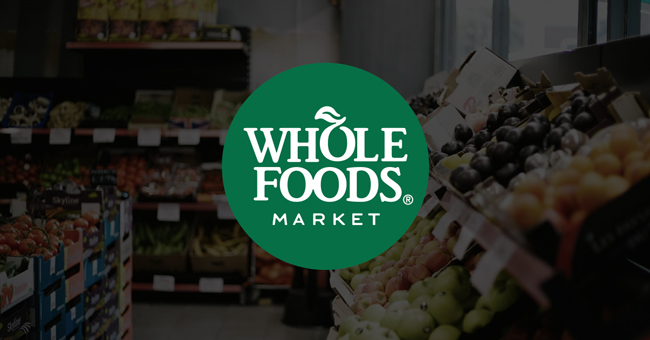Sustainability-focused food trends such as ultra-urban farming and regeneratively-grown grains were among the top picks in this year’s edition of Whole Foods’s Top 10 Food Trends list, released yesterday. For the first time, in conjunction with the announcement, the retailer is offering a 10-item sample box highlighting a product from each trend and valued at $50 with an online-only offering being sold for $30.
Sustainability And Food Sourcing Steps Up
The list was curated by the retailer’s in-house Trends Council team which includes “culinary experts, buyers, foragers, food lovers.” According to council member and Sr. Global Category Manager Parker Brody, consumers need to be prompted to pay more attention towards the way their food is sourced. The report notes that products made with ultra-urban farming methods, “grains that give back” and those that align with “reducetarianism” will all likely garner added shelf space in the new year.
For indoor farm-grown salad maker Gotham Greens, next year’s predictions are right on track. The company recently announced the first phase of its 10-acre hydroponic farm in California will open next month. The company operates nine greenhouses, one of which sits on the rooftop of Whole Foods’ Brooklyn location.
In addition to sustainably produced and sourced salads, “reducetarianism” was also identified as a trend to watch. While consumers are more open to meat-alternatives than ever before and working to actively reduce their consumption of animal products, many will still “make it worth it” by choosing premium offerings such as grass-fed or pasture-raised meats over conventionally raised products, Whole Foods said.
Lastly in the sustainability segment, the trend council believes grains grown with regenerative methods that improve overall soil ecology, specifically Kernza, are poised to shine in the new year. Product lines embracing “Grains that Give Back” — ranging from Annie’s Organic Mac & Cheese to Patagonia Provisions Long Root Pale Ale — will amplify this trend, the report noted, emphasizing an importance that brands use their packaging to actively engage consumers with their missions.
Ingredients and Flavors Ahead
Over the course of the pandemic, increased consumer awareness and interest in functional foods and beverages, particularly those tied to immune-support and gut-health, has been a major development in CPG. The Whole Foods report suggests those trends will continue into 2022, with ingredients such as Yuzu, Hibiscus, Moringa and Turmeric — each of which offer one or both of the aforementioned functions — will begin to appear in a new range of product lines over the next year.
Those ingredients aren’t limited to a single category or product type. Condiment brand Acid League recently introduced a line of salad dressings with one SKU boasting yuzu as its main ingredient. In terms of flavors, the report highlights hibiscus’ potential for success based on its sweet yet tart taste, coupled with its high vitamin c content. The report also notes how the flavor previously had a fairly solid position in beverages and recently began showing up in food products such as Vital Proteins Collagen powder and YoBucha’s Yogurt.
The council also believes sunflower seeds will shine through in allergy-friendly products ranging from seed crackers to cream cheese, writing that even ice cream maker Ben & Jerry’s is getting in on the action with its sunflower butter-based non-dairy line. Last on the ingredients list are tumeric and moringa which are both gaining traction with their added functional benefit in products ranging from smoothies and sauces to cereals and baked goods.
Categories To Watch
Following the “drysolation” trend sparked from the pandemic, the report predicts that the momentum of the non-alcoholic spirits category will continue to surge. The report notes that sales in the category increased significantly in Whole Foods stores over the past year and calls out cocktail alternative brands such as Ritual Zero Proof and Greenbar Distillery which aim to give consumers the same “taste and sophistication” of a cocktail, but without the buzz.
And last but not least, the functional fizz category ranks in at number nine emphasizing the increased popularity of carbonated beverages with prebiotics and botanicals. Brands such as Olipop, Culture Pop, Huzzah! and Poppi have positioned themselves firmly in the category while kombucha maker Health Ade has also recently tried to get in on the action with its recently rebranded Pop line.
